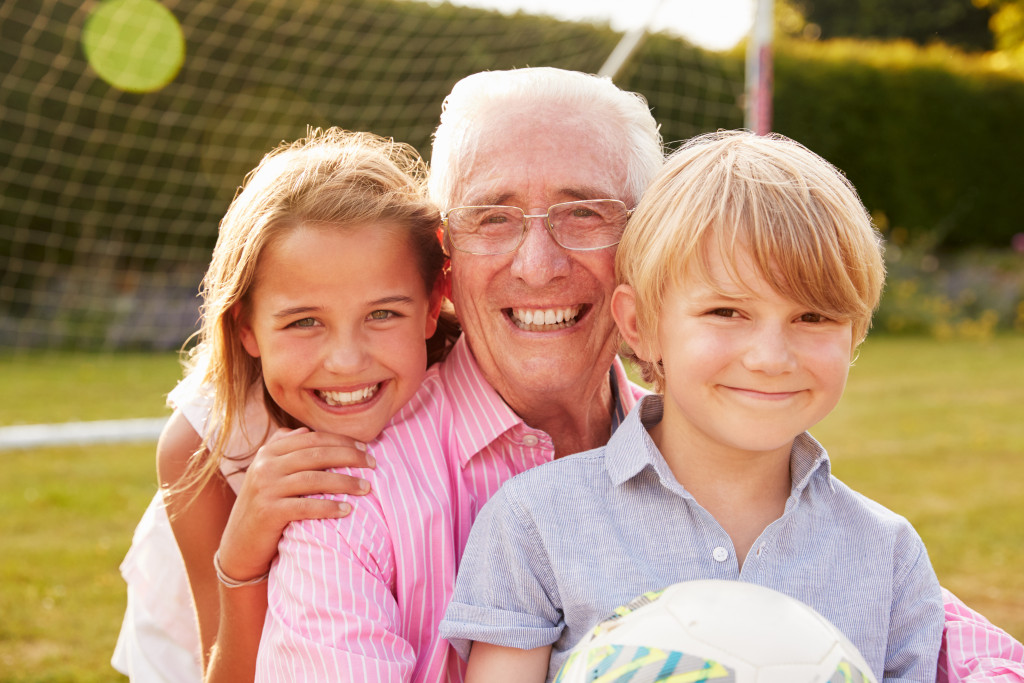Times have changed, and children treasure the time they have with their grandparents less. In our generation today, kids are more excited about games and gadgets instead of spending the weekend at their grandparents’ house. That is why it is incredibly crucial to promote the practice of honoring the elderly and developing their empathy. You can easily incorporate this life lesson into everyday life. Before you know it, your children can grow up into kind and polite individuals, especially towards the elderly.
As young as they are now, they are already picking up habits and practices from the adults surrounding them. That is why it is the parent’s responsibility to guide their children towards the correct path effectively. Here are some of the few ways you can teach your child how to treat the elderly.
Increase their interactions with seniors
Start letting them get used to frequent visits to their grandparents’ home every weekend. There is no better way to start their journey to good manners and etiquette than allowing them to create a bond with their gran and gramps. It is best to begin normalizing getting comfortable with the elderly. As they meet and interact with other senior citizens in the future, they can hopefully remember their grandparents in their new acquaintances. This can help them get more comfortable whenever talking to an older person.
Furthermore, volunteering at nursing homes or senior-living facilities can be another option for your whole family. Volunteering can be a great way to develop your child’s empathy and social skills. Let your child have conversations with the elderly that reside in these care facilities since there is a significant possibility that listening to older people’s stories will be a fun and interesting learning experience for them.
Teach them the basics of etiquette and manners
Don’t expect your child to immediately know what to do once exposed to a situation where they have to interact with the elderly. Practice basic manners and politeness at home and incorporate these lessons in every activity they do at home. For example, teach them when to say please and thank you. On top of that, encouraging them to admit their mistakes and say sorry openly can be a great way to let them get comfortable with accountability. Pay close attention to whatever your kids are doing. Never miss an opportunity to remind them to say these simple phrases out loud. Moreover, don’t forget to practice this outside of the house as well so that they will get used to practicing these habits wherever they may be.
Serve as a great example and role model for your kids

One of the most important ways to teach your child anything is to model the behavior you want them to have. Kids are usually great listeners and observers. When a child sees you being rude and dismissive to older people in the market or the streets, they will immediately think that that should be the way to behave. Because for kids, everything an adult does is right. For that reason, it is crucial to let your children see you interacting with elderly neighbors or your parents with patience and respect. Show them that you speak to seniors in a friendly and polite manner every single time you get a chance to encounter them. These short meetings can go a long way for your children.
Promote respect for diversity
It is essential to encourage your children to be polite to every single person they may encounter. Educate them yourself on how there are no exceptions to being courteous to different people, especially their elders. Teach them the value of paying respect to their elders and share positive family stories that can help them humanize the elderly. Not every senior citizen will be exactly the same. In most cases, they may encounter older people who are suffering from illnesses. Make sure that your children understand that not every elder is the same and that they should still practice courtesy and respect to every single senior they meet. On top of that, it is best to let your kids know that the big age gap between elders and children should not hinder their bonding time.
The importance of respecting elders

Overall, building strong and deep relationships between individuals with substantial age gaps can be challenging at first. There will also be many challenges that you can encounter in the future, such as stereotyping and prejudices. However, closing the generational gap can allow elders to increase their vitality and happiness. Older people are prone to experiencing loneliness and depression. These small but impactful interactions between children and elders can broadly impact the elderly for the better. Teaching your children the value of respect can also bring in multiple benefits as they grow into functioning adults in society.

